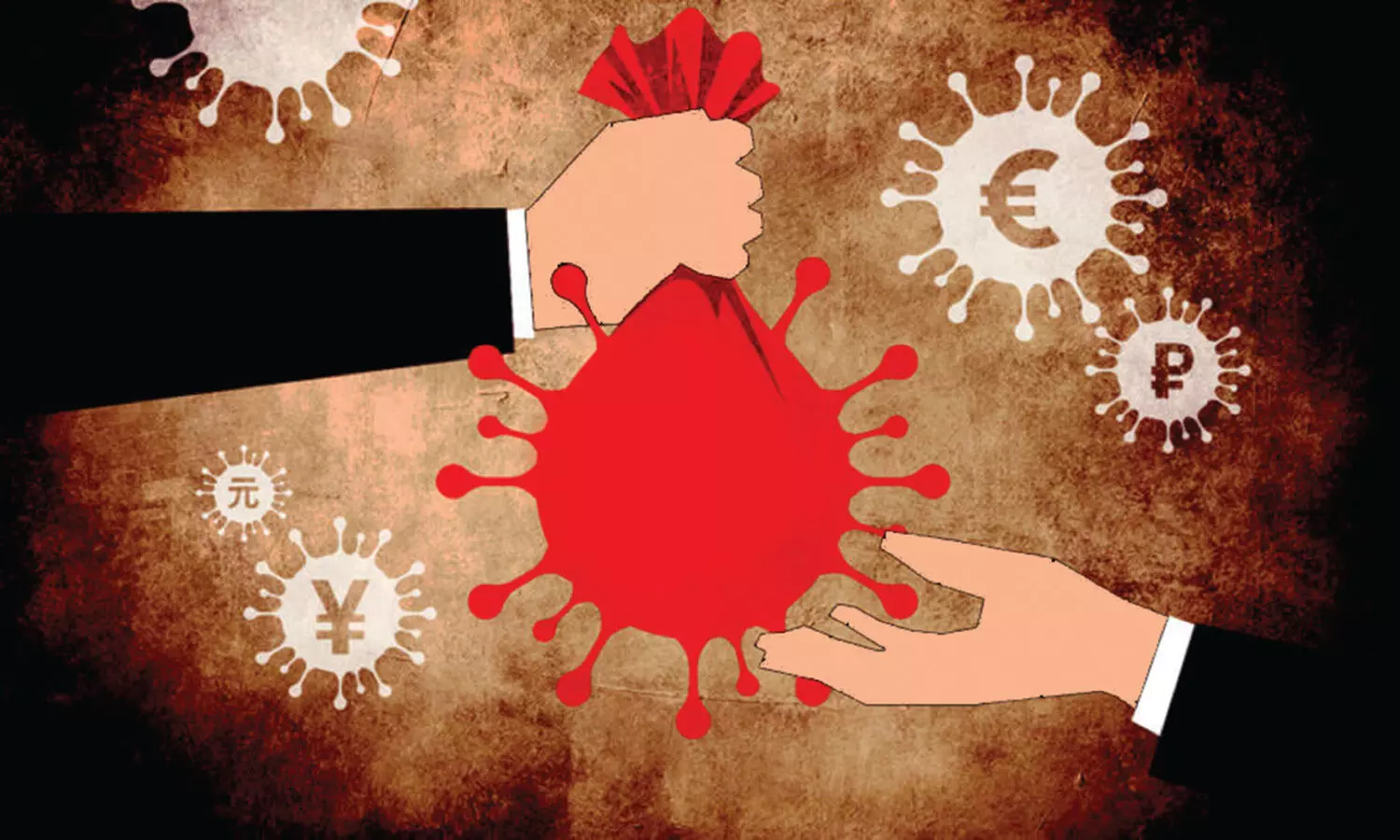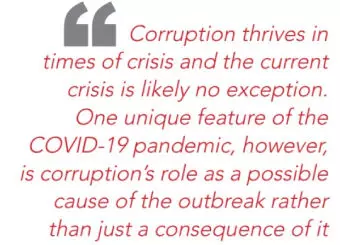- Home
- News
- Articles+
- Aerospace
- Artificial Intelligence
- Agriculture
- Alternate Dispute Resolution
- Arbitration & Mediation
- Banking and Finance
- Bankruptcy
- Book Review
- Bribery & Corruption
- Commercial Litigation
- Competition Law
- Conference Reports
- Consumer Products
- Contract
- Corporate Governance
- Corporate Law
- Covid-19
- Cryptocurrency
- Cybersecurity
- Data Protection
- Defence
- Digital Economy
- E-commerce
- Employment Law
- Energy and Natural Resources
- Entertainment and Sports Law
- Environmental Law
- Environmental, Social, and Governance
- Foreign Direct Investment
- Food and Beverage
- Gaming
- Health Care
- IBC Diaries
- In Focus
- Inclusion & Diversity
- Insurance Law
- Intellectual Property
- International Law
- IP & Tech Era
- Know the Law
- Labour Laws
- Law & Policy and Regulation
- Litigation
- Litigation Funding
- Manufacturing
- Mergers & Acquisitions
- NFTs
- Privacy
- Private Equity
- Project Finance
- Real Estate
- Risk and Compliance
- Student Corner
- Take On Board
- Tax
- Technology Media and Telecom
- Tributes
- Viewpoint
- Zoom In
- Law Firms
- In-House
- Rankings
- E-Magazine
- Legal Era TV
- Events
- Middle East
- Africa
- News
- Articles
- Aerospace
- Artificial Intelligence
- Agriculture
- Alternate Dispute Resolution
- Arbitration & Mediation
- Banking and Finance
- Bankruptcy
- Book Review
- Bribery & Corruption
- Commercial Litigation
- Competition Law
- Conference Reports
- Consumer Products
- Contract
- Corporate Governance
- Corporate Law
- Covid-19
- Cryptocurrency
- Cybersecurity
- Data Protection
- Defence
- Digital Economy
- E-commerce
- Employment Law
- Energy and Natural Resources
- Entertainment and Sports Law
- Environmental Law
- Environmental, Social, and Governance
- Foreign Direct Investment
- Food and Beverage
- Gaming
- Health Care
- IBC Diaries
- In Focus
- Inclusion & Diversity
- Insurance Law
- Intellectual Property
- International Law
- IP & Tech Era
- Know the Law
- Labour Laws
- Law & Policy and Regulation
- Litigation
- Litigation Funding
- Manufacturing
- Mergers & Acquisitions
- NFTs
- Privacy
- Private Equity
- Project Finance
- Real Estate
- Risk and Compliance
- Student Corner
- Take On Board
- Tax
- Technology Media and Telecom
- Tributes
- Viewpoint
- Zoom In
- Law Firms
- In-House
- Rankings
- E-Magazine
- Legal Era TV
- Events
- Middle East
- Africa

Did Corruption Cause the Covid-19 Outbreak?

Did Corruption Cause the Covid-19 Outbreak? What some experts say could have occurred at the "Wuhan Huanan Seafood Wholesale Market" underscores how low-level corruption - common in a high-risk jurisdiction like China - may have also contributed to the spread of one of the world's deadliest diseases With COVID-19 continuing to wreak incalculable devastation around the world,...
To Read the Full Story, Subscribe to Legal Era News
Access Exclusive Legal Era Stories, Editorial Insights, and Expert Opinion.
Already a subscriber? Sign in Now
Did Corruption Cause the Covid-19 Outbreak?
What some experts say could have occurred at the "Wuhan Huanan Seafood Wholesale Market" underscores how low-level corruption - common in a high-risk jurisdiction like China - may have also contributed to the spread of one of the world's deadliest diseases
With COVID-19 continuing to wreak incalculable devastation around the world, questions remain about how the coronavirus emerged and whether its spread could have been prevented.

A host of competing theories are now being bitterly debated and have adopted an increasingly partisan dimension, including one that alleges that the virus originated in a lab in the Chinese city of Wuhan.
Definitive answers are likely to remain elusive for some time, if not indefinitely.
But one potential contributor of the deadly disease deserves additional consideration: corruption.
Corruption thrives in times of crisis and the current crisis is likely no exception. One unique feature of the COVID-19 pandemic, however, is corruption's role as a possible cause of the outbreak rather than just a consequence of it.
Several weeks ago, the Chinese Center for Disease Control and Prevention identified an exotic wildlife market in Wuhan as the epicenter of the lethal outbreak. In recent weeks, evidence surfaced suggesting that the disease was transmitted to humans at a potentially illegally-run Wuhan market after a person ate a snake that had eaten a bat that carried the virus. Other research suggests a pangolin was the intermediary.
But what some experts says believe could have occurred at the "Wuhan Huanan Seafood Wholesale Market" underscores how low-level corruption - common in a high-risk jurisdiction like China - may have also contributed to the spread of one of the world's deadliest diseases.
ILLICIT WILDLIFE TRADE
The market's banal name masked a much darker reality: an exotic, thriving, but illicit wildlife bazaar in which live animals such as bamboo rats, civets, bats, ostriches, baby crocodiles and snakes were purchased and slaughtered for food and medicinal purposes. Like the thousands of other markets across the country, the wild game that were sold in Wuhan are considered culinary delicacies or essential ingredients in certain medicines with purported healing powers.
China's official wildlife industry is valued at over $70 billion and employs more than 14 million people. Dozens of regulations on the books focused on wildlife smuggling, poaching, health and safety are intended to prevent the spread of disease both across borders and across species.
But corruption can easily undermine these laws.
The huge popularity for these exotica combined with lax enforcement and bribery has pushed the wildlife trade underground and allowed it to flourish. Illicit trade is valued at over $22 billion dollars and spans far beyond China's borders, underscoring the magnitude of consumer demand.
Thousands of markets across the country like the one in Wuhan kept scores of live and slaughtered animals in close quarters in blatant violation of governing law.
Enforcement of these regulations is oftentimes left to local, low-level officials who in the past have shown a willingness to take bribes in exchange for turning a blind eye to dangerously unsanitary conditions. These conditions are the giant petri dish for a host of different diseases.

WHAT HAPPENED IN WUHAN?
The question is whether those diseases also include the novel coronavirus that continues to infect the world.
Officials from Wuhan's local regulation authority inspected the city's now infamous bazaar last year in both November and December but gave it passing marks. And yet, Wuhan's mayor acknowledged after the initial outbreak that local officials had failed to properly regulate the city's wildlife market, which may have midwifed the coronavirus pandemic.
In fact, many of the animals at the center of the ongoing epidemic were reportedly trafficked into Wuhan in violation of Chinese law through an illegal supply chain comprised of smugglers and poachers and facilitated by corrupt government officials.
Put simply, corruption could be the culprit of the current crisis.
LESSONS FROM THE PAST
Unfortunately, the pernicious role that corruption played in the COVID-19 crisis is not unprecedented. In 2003, the SARS virus killed more than 750 people, an extraordinary 10% of those who got the disease. The deadly outbreak was once again traced back to China's exotic animal markets and the illicit supply chains that support them. Humans involved in wildlife trade appeared to have contracted the disease from an infected bat via a palm civet. Then, like now, Chinese officials moved swiftly to ban all trade of wild animals and shut down markets throughout the country in an effort to prevent SARS from spreading.
But enforcement once again remained uneven at best. Countless markets that were supposed to stay shuttered reopened and continued to operate, many illegally. The question that arises is how was this allowed to happen? Did local authorities elect to look the other way in exchange for a small bribe rather than enforce an unpopular ban? The illicit trade as well as these markets roared back to life as the memories of SARS faded away.
Nearly two decades later, China is once again confronting difficult questions over why these markets were allowed to reopen and whether the present crisis could have been prevented had the bans been more strictly enforced.
The current outbreak, however, presents China with a rare opportunity to learn from its past mistakes. Chinese officials should move decisively to eradicate graft surrounding illegal wildlife trafficking permanently and ensure illegal markets do not resurface like they did after SARS ravished the region.
The grim reality is that the world will likely never know what caused the current pandemic. But the prospect that localized, petty corruption may have once again helped trigger a global public health crisis is a sobering one and holds important lessons for the future.
Disclaimer – The views expressed in this article are the personal views of the author and are purely informative in nature.


